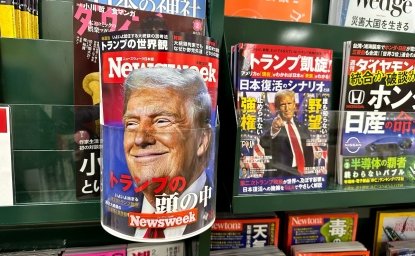Chinese companies are an increasing presence in oil and mining ventures around the world. On Wednesday, January 25, at an event hosted by the Asia Program in conjunction with the Program on Science, Technology, America and the Global Economy and the Kissinger Institute, Wilson Center Public Policy Scholar Jill Shankleman presented the findings of her upcoming report on the effects of this growing presence.
In her presentation, Shankleman examined the changing face of the global oil and mining industries as Chinese companies make inroads into areas once dominated by Western concerns. The majority state-owned Chinese oil and mining companies operate within a framework established by the PRC's State Owned Assets Supervision and Administration Committee (SASAC), and are expected to focus on becoming internationally competitive corporations ranked as Fortune 500 companies. Their larger stake in international extractive projects thus makes Chinese companies both potential partners and competitors of Western companies.
At the same time, Chinese companies are starting to deal with the risks that accompany the "resource curse"–that is, instability and poor governance common in resource rich countries–by investing more in stable countries. As overall resource investment from OECD countries drops amidst the current global financial crisis, there are more opportunities for Chinese companies to invest in such areas. Chinese companies are also attempting to lessen their operational exposure by using joint ventures with overseas companies to invest in riskier concerns. Such projects guarantee Chinese companies a share of resources but leave development and extraction projects up to their global partners.
Shankleman also explained how Chinese companies have approached international initiatives that define and prescribe best practices in the extractive industries. The initial approach of Chinese oil and mining companies was to invest overseas with little knowledge or appreciation of the country or its laws. Now that Chinese companies have more experience "going global," they are acquiring better information about local conditions through feasibility reports, complying with labor and land standards and supporting local philanthropic projects. There has also been some movement to adopt international environmental and social standards, due to domestic pressure in China regarding these issues.
However, Chinese oil and gas companies have shown little interest in international initiatives related to the management and transparency of oil and mining concessions to the governments of resource-rich countries. OECD countries have promoted the Extractive Industries Transparency Initiative (EITI) as a way of encouraging governments to publish audited accounts of the monies that they have received from foreign extractive companies. China has little or no interest in such voluntary initiatives and it is unlikely that–barring a change in the regulatory framework–Chinese companies will support the EITI or similar initiatives in future.
Nevertheless, China's increasing influence on international development aid thinking, and its emergence as a development donor that focuses on "hard" infrastructure rather than "soft" capacity building and governance has had an indirect impact on aid in resource-rich countries. The fact that China will often grant concessional loans to resource-rich countries for projects undertaken by Chinese construction firms means that at least some resource revenue will be used for infrastructure projects.
In conclusion, Shankleman noted that in order to address the resource curse in resource-rich countries which have bad governance and revenue management practices, OECD countries need to recognize that China is a significant player and potential partner in dealing with global resource management issues. Western companies need to assist their Chinese counterparts in understanding the effects that international investment and extraction bring to local communities. Shankleman also suggested that Western actors engage in collaborative studies with Chinese institutions on issues such as revenue transparency. Finally, China would be much more likely to pay attention to global initiatives such as the EITI if they were better linked to established international institutions such as the United Nations.




